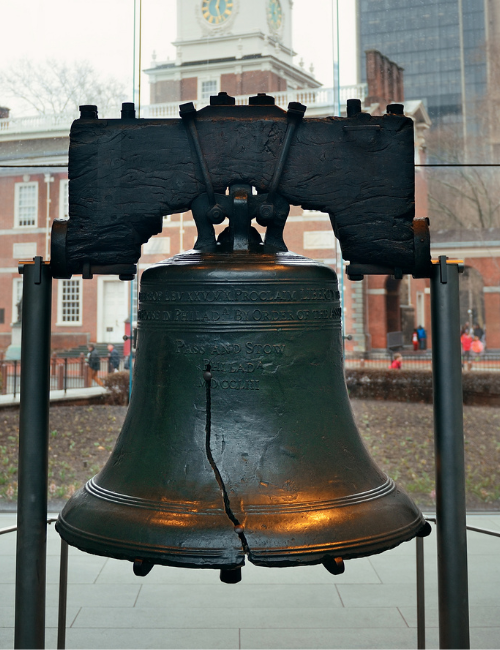
Understanding the Real Estate Market Trends in Philadelphia, PA
Learning about the current market is an important first step if you want to sell a mortgaged home in Philadelphia. The real estate market in Philadelphia is always changing, balancing the city’s traditional charm with a wave of new construction. That mix creates both opportunity and competition for sellers.
Right now, home prices in many neighborhoods are trending upward, thanks in part to low inventory and steady buyer demand. Interest rates, local economic factors, and revitalization projects in areas like Fishtown and Brewerytown are playing a big role in shaping demand. For sellers, understanding these trends helps with pricing decisions and knowing when to list.
Additionally, it is recommended to observe seasonal trends and how customers act. When the sale falls during busy times, like spring and early summer, you may get more attention and possibly sell the house faster. And don’t overlook the local zoning rules and tax guidelines they can impact your sale, especially if you’re navigating an existing mortgage.
Timing the Market: Best Times of Year to Sell Your Home in Philadelphia, PA
In real estate, timing really does matter, especially when you’ve got a mortgage to pay off. It’s usually busy to sell in Philadelphia in the spring and early summer. As the competition rises, buyers become more involved, and homes often sell faster and for more money.
This is especially true for families trying to move before the school year starts. On the flip side, winter tends to slow things down. Between the holidays and cold weather, fewer buyers are out shopping, which can mean fewer offers and more days on the market.
If you’re aiming to sell during a slower season, that doesn’t mean it’s impossible, it just means you might need to be a little more strategic. A well-prepped home, competitive pricing, and a good marketing plan can still make a winter sale work. Working with a local realtor who knows how to navigate these seasonal swings can give you an edge.
Calculating Equity: Determining Your Home’s Value with an Outstanding Mortgage
One of the first things to figure out when selling a mortgaged home is how much equity you actually have. Equity is the difference between your home’s current market value and what you still owe on your mortgage.
To find your home’s value, you’ll want to get a professional appraisal or have your agent run a comparative market analysis (CMA). This looks at recent sales of similar homes in your area. From there, subtract what you owe on your mortgage to see where you stand financially.
That number plays a big role in your selling strategy. If you’ve built up strong equity, you’ll have more flexibility with pricing and negotiations. On the other hand, if you’re close to breaking even or underwater you’ll need to weigh whether it’s the right time to sell or if waiting might put you in a better position.
Essential Steps for Selling a Home with an Existing Mortgage in Philadelphia

Selling a home with a mortgage isn’t unusual, but it does take some prep work. First up, get in touch with your lender to request a payoff statement. This will tell you exactly how much is left on your mortgage, including any interest and fees.
Next, team up with a realtor who knows the Philadelphia market inside and out. They’ll help you price the home correctly, market it effectively, and walk you through the process step by step.
Make sure your mortgage payments are up to date, as that helps avoid any hiccups during closing. Once you accept an offer, your agent and lender will coordinate the paperwork and ensure the mortgage is paid off as part of the closing process.
It’s also a good idea to brush up on any local rules about selling a home with an active mortgage. Staying organized and informed can save you from headaches down the road. We buy houses in Allentown and the surrounding areas, you may contact us if you have questions.
Common Challenges When Selling a Home with a Mortgage and How to Overcome Them
There are a few hurdles that can come with selling a mortgaged home but knowing what to expect can make a big difference. One of the most common issues is pricing the home in a way that covers your remaining mortgage while still attracting buyers.
Another potential hiccup? Delays with getting your payoff statement from the lender or unexpected fees that pop up. That’s why it’s important to request that document early in the process.
If you’re also buying another home at the same time, lining up the closing dates can get tricky. There’s also the chance that an inspection or appraisal doesn’t go as planned, which might affect the sale price or terms of the deal.
To avoid surprises, work closely with professionals who understand the Philadelphia market. An experienced agent and a real estate attorney can help you stay on track and make sure everything goes smoothly.
Legal Considerations for Home Sellers in Pennsylvania
Pennsylvania law requires home sellers to be upfront about the condition of their property, so you’ll need to complete a disclosure form that lists any known problems. This step is not only required it helps build trust with potential buyers and can prevent disputes later on.
You also need to have a clear title to the property. That means addressing any liens or claims before the sale can go through. Request a mortgage payoff statement from your lender to see if there are any prepayment penalties or fees you’ll need to cover.
It’s wise to work with a real estate attorney to review your documents, handle negotiations, and ensure your sale follows Pennsylvania laws. Zoning rules and local ordinances may also come into play, especially if you’ve made changes to the property or it’s in a regulated area. For guidance, Contact Us at Nura Home Buyers.
New Mortgage and Real Estate Rules in Pennsylvania: What Home Sellers Need to Know
Over the past few years, Pennsylvania has introduced some important changes to real estate laws especially for homeowners selling properties with a mortgage. These updates are designed to create more transparency and help avoid delays or disputes during the transaction process.
One notable change is the tightening of property disclosure rules. Sellers are now expected to provide more detailed information about the home’s condition, including any known issues or legal claims like liens. This helps protect buyers and can also shield sellers from legal trouble down the line.
Short sales are also more tightly regulated now, with stricter deadlines and requirements for lender communication. That means if you’re in a situation where your home’s value is lower than your mortgage, you’ll need to act quickly and work closely with your lender.
On top of that, there have been updates to tax rules, including capital gains considerations. If you’re unsure how the latest legislation applies to your situation, it’s worth consulting a local real estate expert or attorney. Staying current with these changes will help you move through the selling process with fewer surprises.
Tax Implications of Selling a Mortgaged House in Pennsylvania

Taxes are often one of the most overlooked parts of selling a home but they can have a big impact on your bottom line. If you’re selling a mortgaged property in Philadelphia, it’s important to understand how both state and local taxes might affect your sale.
For starters, you may be on the hook for capital gains tax if you’ve made a significant profit from the sale. The good news is that if the home was your primary residence for at least two of the last five years, you could be eligible to exclude up to $250,000 of the gain (or $500,000 for married couples filing jointly). That said, this exclusion doesn’t apply to rental or investment properties.
Philadelphia also has its own set of transfer taxes that apply when a property changes hands. These can add up quickly, so be sure to factor them into your estimated closing costs.
To avoid unexpected tax bills, it’s a smart idea to speak with a CPA or tax advisor who’s familiar with Pennsylvania real estate. They’ll help you plan ahead and keep more of your hard-earned profit.
Understanding Closing Costs and Fees When Selling Property in Philadelphia
Closing costs can catch sellers off guard if they’re not prepared. When selling a home in Philadelphia with a mortgage, it’s important to understand what fees you might be responsible for at the closing table.
One of the biggest items is the real estate transfer tax, which in Philly is split between the buyer and seller, though it can be negotiated. There are also title-related fees, like title insurance and settlement charges, which cover services like document preparation and legal filings.
Don’t forget about prorated property taxes, which you may owe up to the closing date, as well as any fees associated with paying off your mortgage. That includes your final loan balance and any prepayment penalties if your loan terms include them.
Getting a detailed closing cost estimate from your agent or attorney early in the process helps you plan for what’s ahead and avoids last-minute surprises. Nura Home Buyers can help if you have any questions.
The Role of Escrow in Selling a Mortgaged House in Pennsylvania
Escrow is one of those behind-the-scenes parts of a home sale that plays a huge role in keeping everything on track. In Pennsylvania, escrow involves a third-party service that holds money and important documents until all parts of the sale are complete.
Once you accept an offer, the buyer will usually deposit earnest money into an escrow account. This shows they’re serious and protects both parties in case something unexpected happens during the process.
Escrow also helps coordinate with your mortgage lender to ensure the loan is paid off correctly when the sale closes. The escrow agent makes sure funds are distributed to the right people, lenders, title companies, and, finally, you as the seller.
They also handle things like tax documents, settlement statements, and making sure both sides meet all legal requirements. Understanding how escrow works can make the entire experience feel more manageable, especially when a mortgage is part of the equation.
Preparing Your Philadelphia Home for Sale: A Comprehensive Checklist
Getting your home ready for sale in Philadelphia, especially if you have a mortgage, means presenting the property in its best light while also staying organized on the financial side. Start by freshening up your curb appeal: trim the lawn, power wash the exterior, and maybe repaint the front door.
Inside, aim for clean and clutter-free. Pack away personal items, fix anything that’s broken, and consider giving the walls a fresh coat of neutral paint. These simple updates can make your home feel move-in ready to potential buyers.
It’s also a good time to gather key paperwork related to your mortgage, title, and any past repairs or permits. Buyers often ask for these documents, and having them ready shows you’re a prepared and serious seller.
Finally, consider working with a local realtor who understands what buyers in your Philadelphia neighborhood are looking for. Their advice on pricing, presentation, and timing can make all the difference.
Ways to Enhance Curb Appeal Before Listing Your House on the Market
First impressions count, especially in a city like Philly, where buyers are often comparing multiple homes in a day. Simple improvements to your home’s exterior can make it stand out right from the start.
Start with the basics: mow the lawn, clean up garden beds, and trim overgrown shrubs. A few potted plants or a seasonal wreath on the door can go a long way in making the entrance feel warm and welcoming.
Check for small details, too. Clean the windows, update your house numbers if they’re faded, and make sure outdoor lighting is in working order. If the porch or steps need attention, a quick paint touch-up or repair can make a big impact.
In neighborhoods with older homes, it’s also smart to highlight architectural charm, whether it’s decorative trim, brickwork, or vintage doors. These features help your home feel authentic and unique in the Philly market.
Staging Tips for Increasing Buyer Interest in Your Philadelphia Property

When it comes to selling a home, staging can make a huge difference, especially in a competitive city like Philadelphia. The goal is to help buyers picture themselves living in your space.
Start by getting rid of unnecessary things like family pictures and collections. This helps buyers focus on the house itself instead of the people who live there now. An open and clean look can be achieved with neutral paint colors and simple decorations.
Arrange furniture to make rooms feel spacious and show off their functionality. For example, make sure your living room feels open and your dining room is clearly defined. Adding fresh flowers, a bowl of fruit, or tasteful art can also help brighten up the space.
Open the blinds and clean the windows to let in as much natural light as you can. For a lived-in but polished look, don’t forget the little things, like new towels in the bathroom or cozy throws in the living room.
Can I Sell My House Even If I Have a Mortgage?
You can sell your house in Philadelphia even if you still owe money on it, and a lot of people do just that. It’s important to know what you owe and how that impacts the process.
First, call your lender and ask for a mortgage payoff account. This paper tells you exactly how much of your loan is still due, along with any fees or interest that are due at the closing. Your real estate professional can then help you set the right price for your home so that you can make your down payment, closing costs, and even a profit.
Once you receive an offer and move toward closing, your mortgage will be paid off using the proceeds from the sale. Whatever’s left over goes to you. It’s important to keep your lender informed throughout the process to ensure everything is wrapped up smoothly when the deal closes.
With proper planning, selling a mortgaged home is a straightforward process even in a competitive market like Philadelphia.
Can You Sell a House with a Lien on It in Pennsylvania?
Yes, it’s possible to sell a house with a lien on it in Pennsylvania, including Philadelphia but it takes some extra steps. A lien is essentially a legal claim against your property, usually because of unpaid debts like taxes, contractor bills, or court judgments.
Before the sale can go through, that lien has to be resolved typically by paying it off at or before closing. A title search will uncover any existing liens on your home, and your realtor or attorney can help you figure out the best way to handle them.
Sometimes, the lien amount can be deducted directly from the sale proceeds. In other cases, you might need to negotiate with the lienholder ahead of time. Either way, clearing the title is a must if you want to transfer ownership to the buyer.
If you work with people who know Pennsylvania’s lien rules, this part of the process will go more smoothly and the sale will go through faster.
Can You Sell For Sale By Owner If You Have a Mortgage?
Yes, you can sell your Philadelphia home “For Sale By Owner” (FSBO) even if you still have a mortgage, but it’s important to know what you’re getting into. When you go the FSBO route, you take on the responsibilities that would typically fall to a listing agent including pricing, marketing, negotiating, and managing legal paperwork.
First, get the amount you need to pay off your debt from your lender. This helps you decide how much to charge for your item so that you can cover the amount you still owe plus any sales fees. You’ll also need to think about transfer taxes, the cost of staging, and maybe hiring a lawyer to help you with the sale contract and close.
Because Philadelphia’s market can be fast-moving and competitive, doing FSBO successfully often requires solid market knowledge and strong attention to detail. FSBO can save you money on commission fees if you’re sure you can handle the process yourself. To avoid any problems, just make sure you know everything you need to know about what the law says about real estate in Pennsylvania.
Is It Harder to Sell a House with a Mortgage?
In Philadelphia, selling a house with a debt isn’t always harder; you just have to think about a few extra things. In fact, it happens a lot, and most real estate deals involve homes that still have loans tied to them.
The biggest factor is making sure the sale price covers your remaining mortgage balance. That’s where your lender’s payoff statement comes in, it tells you how much needs to be paid at closing to satisfy your loan. From there, your agent can help you price and market the home based on current market trends in your neighborhood.
Also, check your mortgage deal to see if there are any early payment fees that could change your net proceeds. But if you plan ahead and make your payments on time, selling with a mortgage shouldn’t be too hard.
With a clear strategy and the right team in place, selling a mortgaged home can be just as smooth as any other real estate deal.
Need to sell your home quickly and easily? Nura Home Buyers offers fair cash offers, buys houses as-is, and takes care of all the details with no commissions or headaches. Call us today at (610) 550-8365 for a free, no-obligation offer.
Helpful Philadelphia Blog Articles
- Selling Your House As-Is In Philadelphia, PA
- Closing Costs When Selling A Home In Philadelphia, PA
- Sale Of Your Philadelphia, PA, Home Amid Divorce Proceedings
- Selling Your Philadelphia, PA, Home Without A Real Estate Agent
- Selling A Foreclosed Home In Philadelphia, PA
- Selling A Probate House In Philadelphia, PA
- Sell Your Philadelphia, PA, Home Needing Repairs Without Renovation
- Is Philadelphia, PA, Safe
- Philadelphia, PA, Neighborhood Map
- Free Things to do in Philadelphia, PA
- Best Property Managers in Philadelphia, PA
- Philadelphia, PA, Cost of Living

| MORTGAGE DEBT | MORTGAGE LOAN | KEYSTONE STATE | REALTOR | TAXED | CASH |
| BANK | HOMEOWNERSHIP | HOMEBUYERS | PREPAYMENT PENALTY | ATTORNEYS | LAWYER |
| PROFITS | MLS | HOMEOWNERS ASSOCIATION | HOMEOWNERS’ ASSOCIATION | HOA | HOMELIGHT |
| HOME EQUITY | DOWN PAYMENT | CREDIT | FORECLOSURE | PRIVACY | UNDERWATER |
| NEGATIVE EQUITY | INVESTORS | WARRANTY | THE UNITED STATES | OPTION | THE NATIONAL ASSOCIATION OF REALTORS |
| NAR | INCOME | HOME WARRANTY | HOME EQUITY LOANS | BORROWER | |
| DATA | CONDO | CONDOMINIUM ASSOCIATION |
